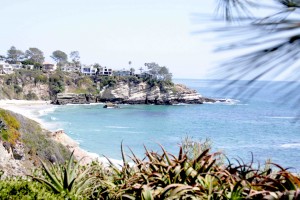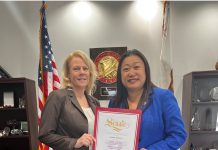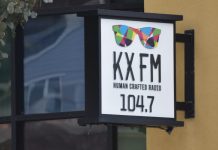
In “Dragging Special Districts From the Shadows,” a report summarizing the findings of its most recent year-long investigation, the county Grand Jury issued a sweeping recommendation that all of the county’s special districts be removed from the county tax system, and then absorbed by other agencies, consolidated, or privatized.
In Laguna Beach, the recommendations apply to three such special districts, the gated communities of Emerald Bay and Three Arch Bay, as well as South Coast Water District. In all, the 2011-12 report released on Friday, May 5, identifies 27 such districts countywide that either sell products, such as water, or provide services.
The Grand Jury’s most emphatic criticism centers on the districts’ redundancy and a perceived lack of transparency and accountability, which it claims have been documented for over 50 years. It recommends that all districts be weaned from the tax rolls, a savings of nearly $1 million for the tax assessor’s office alone, suggesting that sewage and water districts become solely fee-based and possibly privatized, and that community service districts obtain services provided by surrounding cities or local homeowners associations.
While lacking the authority to enforce their recommendations, the grand jury can only hope that its findings provide constituents of districts more clarity in demanding accountability of their elected leaders. By law, the subjects of grand jury reports are required to respond to the findings and recommendations.
Formed by the local electorate and certified by the county Board of Supervisors, special districts govern their own day-to-day operations through their own board of directors, bypassing control by the surrounding cities, county and state. Any structural changes to the special districts, such as their abolition, require a vote of the constituents within that district.
The initial justification for devising such districts to provide unavailable services to a disparate rural population no longer holds true, says the report, noting that the county’s last new district was established in the ‘60s.
Previously isolated service districts now find themselves surrounded by cities providing comparable services, the report says. Even within the districts, those services have often become integrally entwined with homeowners associations.
The Grand Jury points out a failure of accountability and transparency by many districts, noting that the 27 districts have total budgets of more than $718 million but unrestricted reserves exceeding $866 million, funds it claims to be largely “available to the governing boards to spend as they please.” Most districts have no specific criteria for how such reserves are amassed, nor publish long-term plans for their use, the report said.
Furthermore, the report singled out 16 districts, including the three in Laguna, for possessing unrestricted reserves that exceed their annual budgets. South Coast Water District’s budget comes to $27.5 million and its unrestricted reserves, $38 million; Emerald Bay boasts a budget of $1.8 million and unrestricted reserves totaling $2.8 million; and Three Arch Bay’s budget of $1.5 million has twice that, $3 million, in unrestricted reserves.
The report also took issue with the way the districts are governed. Despite purporting to meet the needs of their local residents, the governing agencies received only limited public input at their meetings, based on a sampling of last year’s minutes from the special districts.
Bill Hart, a board member for the Emerald Bay Service District, said directors will meet next week to review and discuss the report, but stressed that the district “has provided multiple valuable and cost effective services to its residents for over 40 years.” He said the district’s finances are transparent and professionally accounted for and that its directors receive no compensation for the hours they contribute each year.
A spokesperson for the Three Arch Bay Community Services District said that their board will consider the report once they have received specific details regarding their district that were not included in their original mailing.
Emerald Bay resident Randy Hunt, for his part, generally agrees with the Grand Jury’s findings. Hunt, a critic of a controversial traffic signal that the Emerald Bay district seeks to underwrite, sees a potential for abuse in how unrestricted reserves are ultimately spent within the community. Those reserves would be used to fund the signal if it receives approval, a use Hunt does not condone.
For his part, Emerald Bay resident (and former board member) Steve Rabago said that the community’s taxpayers have an opportunity to voice their opinion on how funds are managed and spent as board agendas are posted and meetings open to the community. He believes the district should remain intact.
The report pointed out a dearth in accountability in auditing practices by the 27 special districts. While the law requires all special districts to conduct annual financial audits, which are public documents, South Coast Water District remains the only one that has conducted performance audits that evaluate the effectiveness and efficiency of their operations. Such a lack allows for potential inefficiencies and poor practices that might be hidden from the communities they serve, the report says.
Besides advocating the removal of districts from county tax rolls, the report recommends that county tax bills include itemized service district costs, that all districts provide their constituents with an independent performance audit at least once every three years; and that districts reduce future revenue to avoid stockpiling unallocated unrestricted reserves.
All districts are required to submit comments on the findings and relevant recommendations to the presiding judge of the Superior Court within 90 days.




